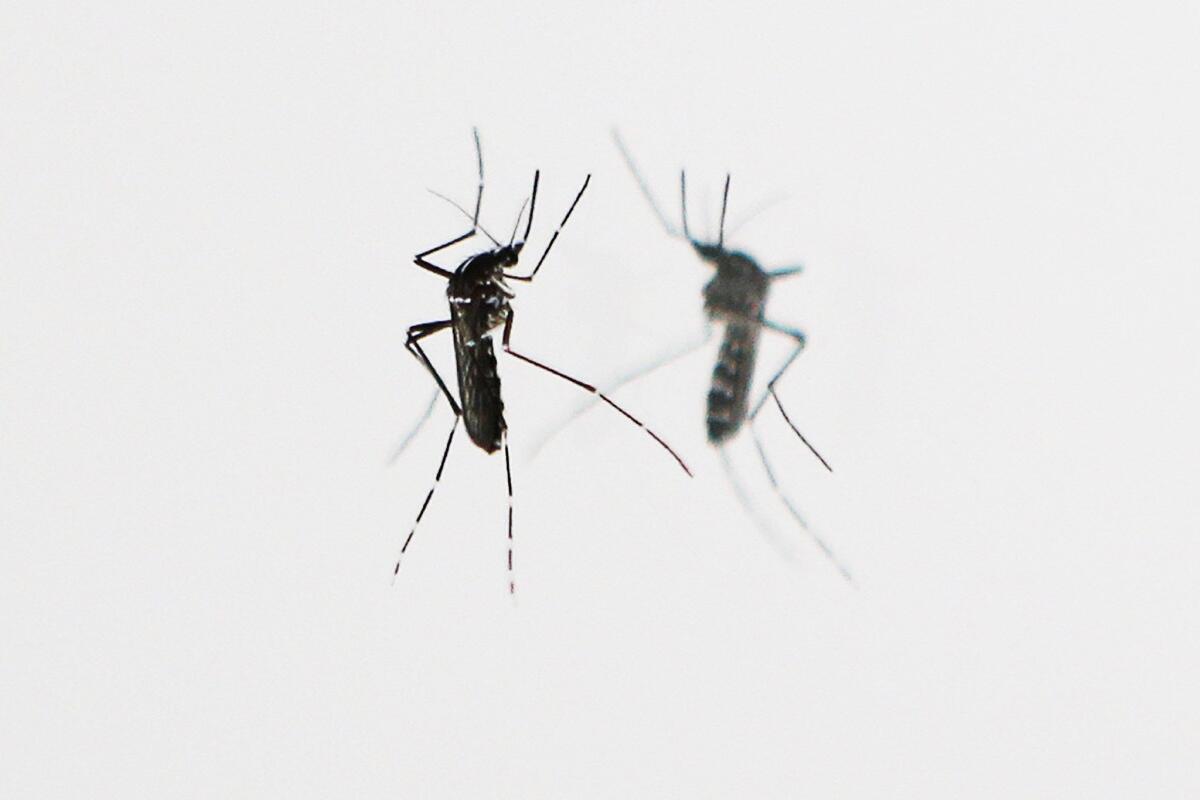Editorial: A biting and serious situation

An Asian Tiger mosquito is pictured, on September 29, 2015 in Nice, Southeastern France. In La Cañada, city officials learned Wednesday that invasive Asian tiger mosquitoes are active in at least one area.
It may seem counterintuitive, but the prolonged drought we’ve been enduring has led not only to forced water conservation measures, but also to an uptick in the number of mosquitoes and victims to the diseases they can carry.
This week we learned of two Glendale residents, both seniors, who were infected by the mosquito-borne West Nile virus. One, a man, succumbed to the virus, and the other case involves a woman who was hospitalized but appears as of press time to be improving.
At least 11 fatalities have been linked to the virus and 126 people countywide have been infected to date this year. (These numbers do not include the cities of Pasadena and Long Beach, which have their own reporting protocols.) Symptoms can include high fever, very stiff neck and back, severe headache, confusion or disorientation, muscle weakness and convulsions or seizures.
Also, in neighboring La Cañada, city officials learned Wednesday that invasive Asian tiger mosquitoes are active in at least one area there. These mosquitoes, which have spread rapidly since first being detected in El Monte in 2011, can carry the dengue, yellow fever and chikungunya viruses. And they don’t just strike at dawn and dusk, when other mosquitoes do — the Asian tiger mosquito is also active during daytime hours.
Health officials have plenty of other concerns to contend with in periods of normal weather patterns. However, the scarcity of water in streams in recent years has drawn the insects to whatever other sources they can home in on, including such seemingly innocuous spots as saucers under potted plants.
According to the Greater Los Angeles Vector Control District, they’ll even lay eggs in as tiny a space as an upturned bottle cap.
Now is the time, if you have not already done so, to thoroughly inspect your property to make sure there is no inviting spot for mosquitoes to lay eggs. Repeat this step regularly.
Also, stock up on one of the many insect repellents that are on the market and use it. West Nile virus, and the mosquitoes who carry that and other awful viruses, are the new norm. It’s best for all of us, going forward, to take care when we are enjoying the outdoors.